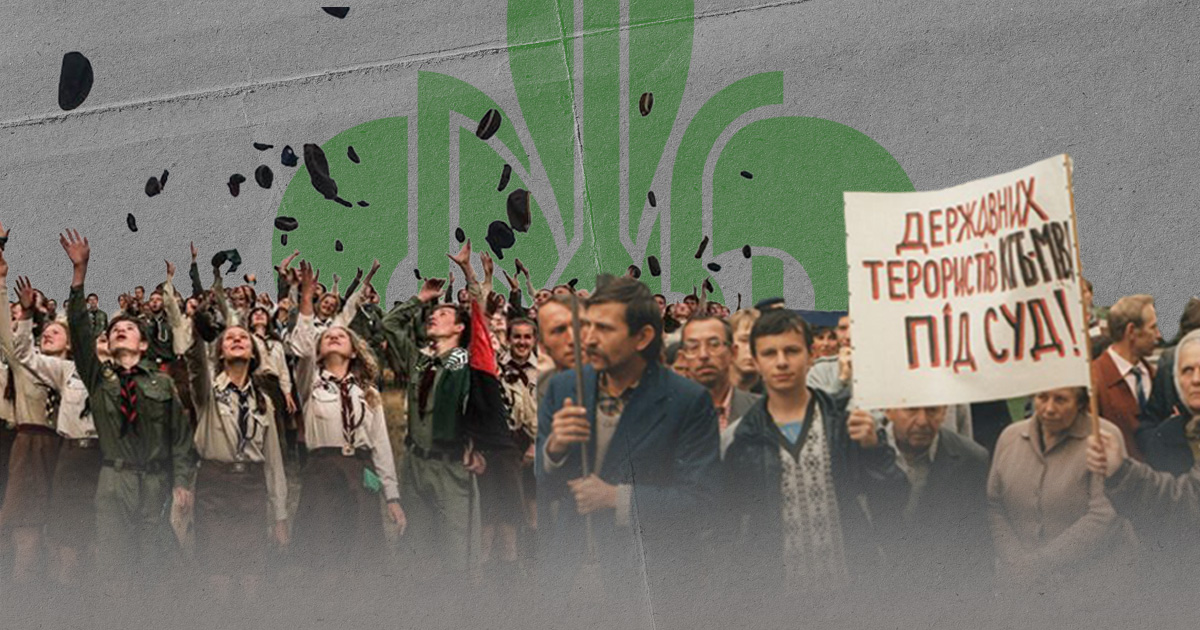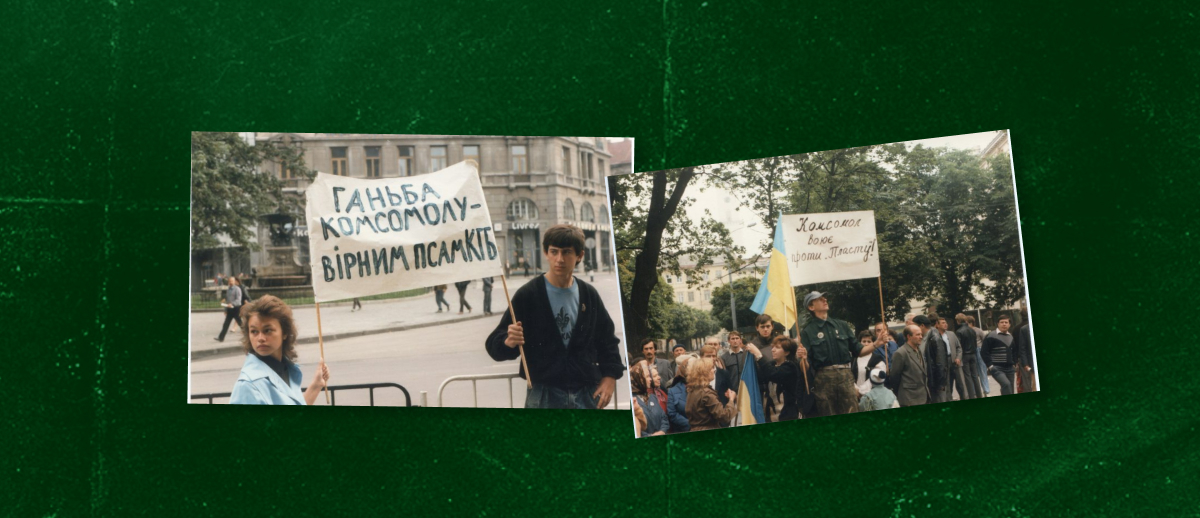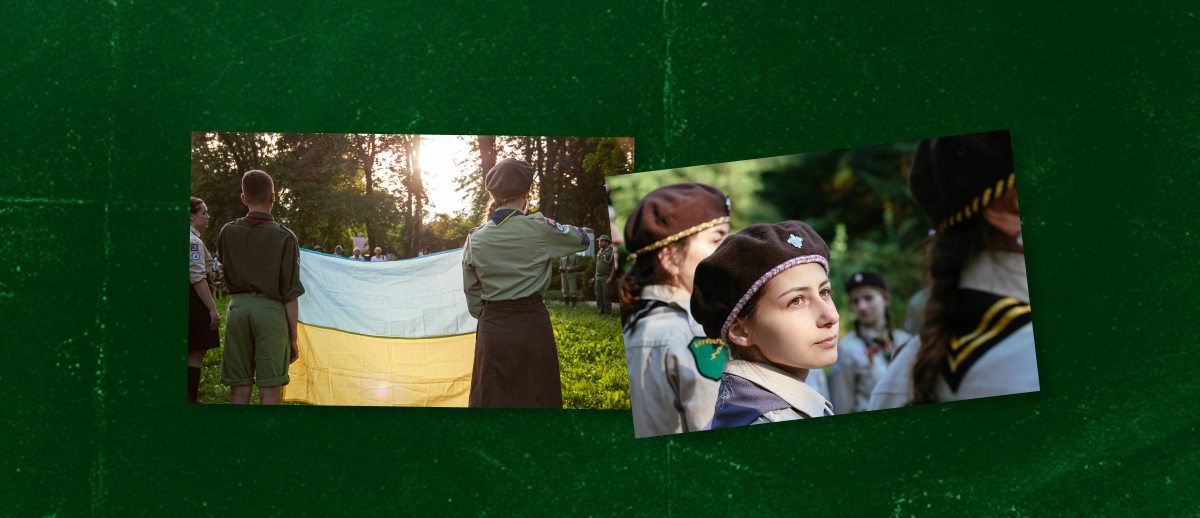Why is Russia afraid of Ukrainian Plast?
Ihor Medvedev

The liberal Hitler Youth, Nazism in absolute terms, an anti-Russian organisation and a history of centuries of Russophobia — all these Russian fakes aim at Ukraine's largest youth organisation, Plast. However, the desire to destroy and ban Plast is not new; neither has it for over a century.
On April 12, Plast celebrates the 111th anniversary of its first oath. Throughout its history, the organisation and its members have been harassed, persecuted and killed by the Soviet-Russian authorities because they were at the forefront of the struggle for Ukrainian statehood. The fear of the new generation forced Russia, in all its state forms, to destroy Plast.
How has the Soviet-Russian government fought Plast?
In their methods of struggle, the Soviet punitive machine and modern Russian propaganda often looked brutal and sometimes even comical, banning and vilifying the Ukrainian national scouting movement.
For the first time, Plast was banned by the Russians in 1919, immediately after the occupation of Ukrainian territory by the Bolsheviks, and was later replaced by the Pioneer movement. The decision was made primarily because of the active participation of Plast members in the First Liberation Movement.

In 1922, Roman Shukhevych, the future general-lieutenant of the Ukrainian Insurgent Army, joined Plast and would be written about by the Russian media: "the central figure of perpetuation and worship in the Plast organisation. Hitler's accomplice, organiser of mass murders of Poles and Jews". The Bolsheviks saw the figures of Plast members Stepan Bandera, Roman Shukhevych, and Mykola Lebid as a threat.
During the perestroika period and the so-called "liberalisation" of the USSR, Plast began its revival in Ukraine and was immediately opposed by the KGB and the authorities. The KGB visited the Lviv region during the Shukhevych Plast camp in August 1989. They wrote in their documents that the Plast members behaved " defiantly" and used anti-Soviet, nationalist, and anti-Russian statements.

During the conversation with the Komsomol members, they called the USSR an evil empire, "proclaimed the ideas of the Bandera followers", and spoke of their intention to fight for a Ukraine free from Russians and its unity. After that, the camp was dispersed, and "explanatory educational and preventive talks" were held with the Plast members. The next day, 5 August 1989, Lviv residents protested against the camp dispersal.
The more Plast developed in Ukraine, the more absurd the statements and actions of the Russians became. This time, disinformation became the primary weapon.
In 2010, the Russian media reported how Plast allegedly "forced" children to squat for the Russian language. The "journalists" presented the information one-sided and biasedly, inventing facts.
The hatred and absurdity increased after the Revolution of Dignity and the start of the Russian-Ukrainian war, when Plast members were among the first to defend statehood.
One of the most recent fakes is the story of underage Plast members allegedly participating in hostilities. It is absurd that even Ukrainian law prohibits minors from fighting.
There was also an attempt to accuse the Plast members of wearing the same uniform as the Hitler Youth. However, all scouts worldwide wear uniforms of the appropriate colour, a tradition not associated with the Nazi organisation.
Why are Russians afraid of Ukrainian Plast?
The fear and desire of the Russians to destroy, ban and discredit everything related to Plast can be explained by the values that Plast carries, making it impossible to have such a thing as a "Russian world".
At all stages of its development, Plast has been at the forefront of the struggle for Ukrainian statehood and developing a conscious generation of Ukrainians. From the very beginning of its existence, Plast members fought for Ukrainian interests: first as part of the Ukrainian Sich Riflemen legion, then organising resistance and carrying out activities under the ban, and later becoming the main organisers of the Second Liberation Movement as part of the Ukrainian Insurgent Army - Organization of Ukrainian Nationalists.

Even in exile, Plast developed a Ukrainian diaspora that helped Ukrainians living under Soviet occupation. This is what the Plast singer Kvitka Tsysyk did.
These values are inherent in every Plast member and Plast girl through tradition. Scouts take an oath in which they promise to do everything in their power to:
1. Be loyal to God and Ukraine.
2. Help others.
3. Live by the Plast Law and obey the Plast leadership.
As of the beginning of April, 29 Plast members were killed in the Russian-Ukrainian war, and more than 530 are at the front. Yet, most Plast members volunteer, weave nets, send donations, and organise volunteer headquarters to help the army and affected Ukrainians. And Plast educators continue to work with children so that they can develop even in times of war.
Russians fear Plast because they know that its representatives will always be ready to defend and develop Ukraine no matter what.


